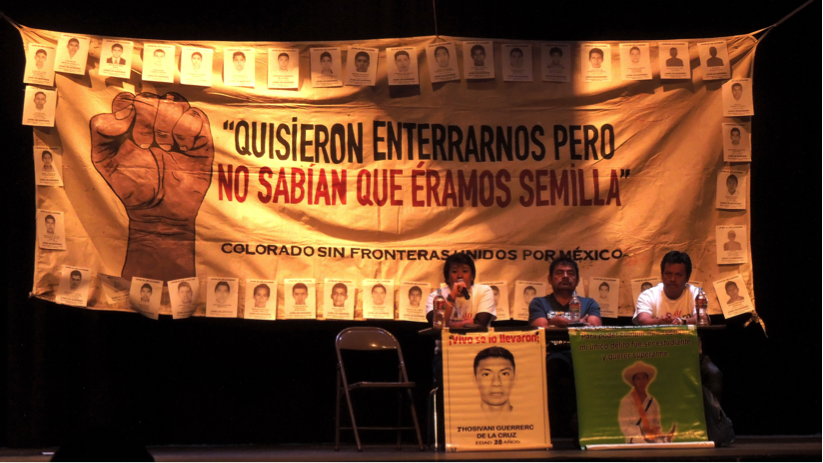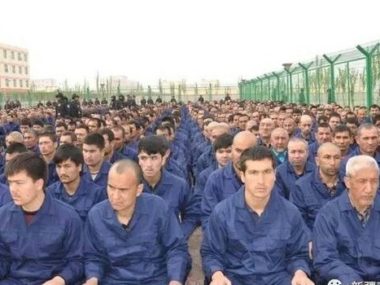
American President Barrack Obama will be inaugurated for a second term next month. Meanwhile, the global polio eradication campaign continues to suffer specific setbacks, and the effort to use science and medicine to reduce disease and suffering has generally suffered. What have these to do with one another?
Let us begin with a report earlier this week in the American Academy for the Advancement of Science’s news policy publication Science Now:
“Just as Pakistan’s polio program was making significant progress in its fight to eradicate the disease, it has been hit by a devastating bout of violence. Six vaccination campaign workers were shot and killed yesterday and today, and two others were injured, in attacks in Karachi and Peshawar, in the northwestern part of the country.”
The Wikipedia entry on the campaign begins this way:
“The global eradication of poliomyelitis is a public health effort to eliminate all cases of [polio] around the world. The global effort, begun in 1988 and led by the World Health Organization, UNICEF and The Rotary Foundation, has reduced the number of annual diagnosed cases from the hundreds of thousands to around a thousand. If polio is the next disease to be successfully eradicated, this will represent only the third time this has ever been achieved.”
Why would vaccination campaign workers be targeted for such violence? Researchers such as Larissa Fast of Notre Dame have documented the myriad reasons why combatants in war target aid workers. Yet these particular aid workers were targeted for a very specific reason. Back in July IRIN Asia reported
“Efforts to combat polio in Pakistan have received a sudden setback just as the fight against the disease had seemed to be going well, with the Global Polio Eradication Initiative reporting only 22 cases in the country this year, a distinct improvement on the 59 reported by the same date last year. Hafiz Gul Bahadur, an influential Taliban commander in the North Waziristan tribal agency, has banned polio vaccinations, prompting Taliban leaders in South Waziristan and other tribal areas to follow suit, according to Maulana Mirza Jan, head of the `shura’ or assembly of religious scholars, in Wana, the principal city of South Waziristan.”
The killings this week were an effort to enforce that “ban”. Why has the Taliban opposed polio vaccinations in Pakistan? On January 28th of this year the New York Times reported that former CIA Director Leon Panetta
“is the first American official to publicly confirm that a Pakistani doctor imprisoned by Pakistan’s intelligence service in the days after the Bin Laden raid had been working for the CIA, collecting intelligence in Abbottabad. American officials have said that the doctor, Shikal Afridi, had been running a phony hepatitis B vaccination program as a ruse to obtain DNA evidence from members of Bin Laden’s family, who were thought to be holed up in the Abbottabad compound. Obtaining DNA at the compound would have allowed Americans to match the samples with Bin Laden family DNA evidence on file at the CIA., providing evidence that Bin Laden was hiding in Abbottabad” [emphasis mine].
GQ has just published an investigative news piece providing more detail on the operation.
Let us travel, for a moment, to 1980. US President Jimmy Carter was running against Republican challenger Ronald Reagan and, like Obama this past year, hoped for a second term in office. Iranian students had kidnapped over a score of American diplomatic staff and were holding them hostage. Carter launched an ambitious military assault, Operation Eagle Claw, to free the captive government personnel. It failed miserably, contributing a substantial blow to his re-election bid.
Return to 2011. American presidents who appear impotent in the face of threats from abroad tend not to fare well at the polls, but more importantly, if Obama could make good on his 2008 campaign promise to bring Osama bin Laden to justice, it would substantially boost his reelection prospects. Economic recession and legislative deadlock were defining his presidency. Yet the Carter lesson loomed in background: spectacular failure is worse than quiet failure as the former generates headlines while the latter does not.
I recently posted on this blog a piece about the impact of democracy and wealth upon countries’ military targeting strategy. The story about this week’s murder of the polio vaccine workers is another chapter for that tale. The capacity to bring DNA testing technology to bear provided policymakers with a tradeoff to weigh. On the benefit side, the operation could provide intelligence that bin Laden was actually in Abbottabad, thus reducing the risk of ordering a raid that would be viewed as a fiasco if he’d never been there. On the cost side, the operation would not only dramatically reduce the safety and security of aid workers, but also reduce the likelihood that a global campaign that the US government has supported Reagan would be successful (and more generally undermine all such public health efforts). Put yourself in the position of a campaign consultant. What do you recommend?
OK, that was a rhetorical question.
Whether the final approval for “running a phony hepatitis B vaccination program as a ruse to obtain DNA evidence” was made in the White House or the US Central Intelligence Agency is immaterial. Leon Panetta and Barrack Obama have dirtied their hands, and now have not only the souls of those six women, but also the unknowable human beings who will suffer from polio as a result of the degradation of the campaign, as well as those who will suffer other maladies. A fake vaccination campaign is a “perfect cover” because of the Hippocratic Oath. An intelligence agency’s manipulation such as that conducted by the CIA wantonly damages the doctor-patient relationship. When aid workers are the foundation of the programs that are mimicked, the damage is even more widespread.
The Dirty Hands Problem asks whether political leaders should “violate the deepest constraints of morality in order to achieve great goods or avoid disasters for their communities?” The positions staked out among the philosophers who have written on this topic are worthy of a few minutes of your time, and I recommend the link above for a summary. Yet what I find missing from the conversation is consideration of the hypothetical campaign advisor I introduced above (if readers are familiar with work that addresses this, please comment below). Democratic government tends to be celebrated, and rightly so, as does macroeconomic productivity and the technological innovation it makes possible. Yet those processes have a dark side, and we ignore them at our convenience.
I leave you with this question: would you have dirtied your hands and made the trade-off Mr’s Panetta and Obama made?
@WilHMoo







5 comments
Reblogged this on Roderick's Journal.